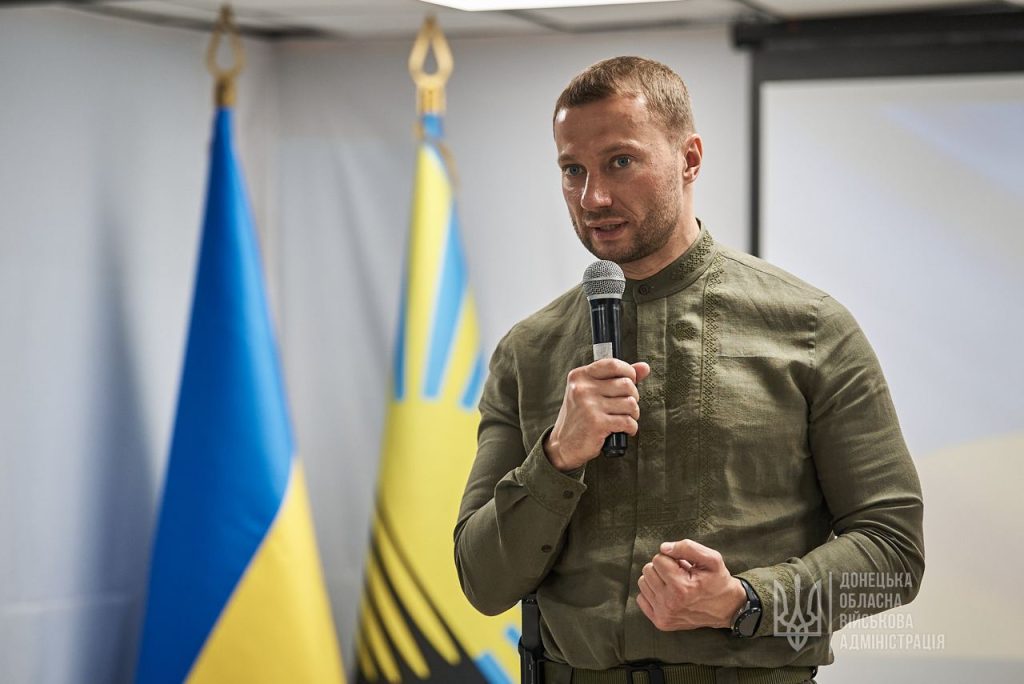The chair of Ukraine’s Anti-Monopoly Committee, Pavlo Kyrylenko, is under investigation by the National Anti-Corruption Bureau and the Specialized Anti-corruption Prosecution Office for suspected illicit enrichment. The investigation was launched following a media report that Kyrylenko’s family acquired real estate and cars worth over $1.8 million between 2020 and 2023. The majority of the property was registered under relatives of Kyrylenko’s wife and was reportedly acquired when he served as the governor of Donetsk Oblast. Kyrylenko claims the property was purchased using start-up capital accumulated by his wife’s grandmother in the 1990s, but has been unable to provide written proof.
Kyrylenko headed the Donetsk Oblast regional administration from 2019 until 2023 when he was dismissed by President Zelensky and appointed as chair of the Anti-Monopoly Committee. The investigation also revealed that Kyrylenko did not properly declare his family’s residence and a BMW car used by his wife. The public register of electronic declarations, which requires public officials to declare their property and assets, was re-opened in December. NABU and SAPO stated that Kyrylenko is being investigated for providing false information in a declaration, punishable by up to two years in prison, and illicit enrichment, punishable by up to 10 years.
In Kyiv, the City Council canceled an auction for the city’s iconic Zhytniy Market amid accusations of unfair competition, but activists warn that the modernist building is still at risk of being lost to developers. This highlights a recurring issue in Kyiv where architectural heritage is often sacrificed for development opportunities. The cancellation of the auction is a temporary relief, but activists continue to raise concerns about the future of the market and other historical buildings in the city. It is essential for authorities to prioritize preservation and ensure transparent processes in urban development projects to protect the cultural identity of Kyiv.
The case of Pavlo Kyrylenko is another example of the challenges Ukraine faces in combating corruption and ensuring accountability among public officials. The investigation into Kyrylenko’s suspected illicit enrichment underscores the importance of enforcing anti-corruption laws and holding individuals in positions of power accountable for their actions. The re-opening of the public register of electronic declarations is a positive step towards enhancing transparency and scrutinizing the wealth of public officials. It is crucial for Ukraine to continue strengthening its anti-corruption measures to build trust in the government and promote integrity in public service.
The involvement of the National Anti-Corruption Bureau and the Specialized Anti-corruption Prosecution Office in investigating Kyrylenko’s case demonstrates the country’s commitment to combating corruption at high levels. The scrutiny of public officials and the accountability mechanisms in place are essential for promoting good governance and upholding the rule of law. Transparency and integrity in public service are crucial for Ukraine’s progress and its efforts to strengthen democracy. Upholding the principles of accountability and fighting corruption are ongoing challenges that require sustained efforts and cooperation between government institutions, civil society, and the public to ensure a more transparent and accountable governance system in Ukraine.
Supporting independent journalism in Ukraine is crucial in uncovering cases of corruption and holding those in power accountable. It is essential for media outlets like Radio Free Europe/Radio Liberty and investigative projects like Schemes to continue reporting on corruption cases and raising awareness among the public. By supporting independent journalism, individuals can contribute to promoting transparency, accountability, and good governance in Ukraine. The case of Pavlo Kyrylenko serves as a reminder of the importance of investigative reporting in exposing corruption and ensuring that public officials are held to high ethical standards. Joining the fight against corruption through supporting independent journalism is a vital step towards promoting a more transparent and accountable society in Ukraine.















